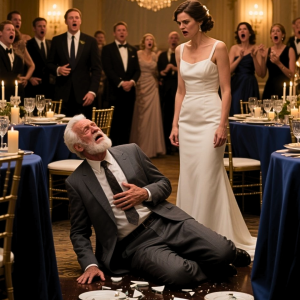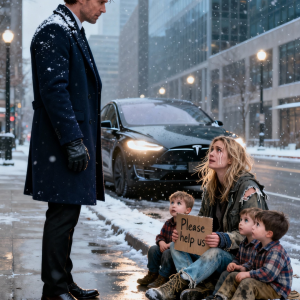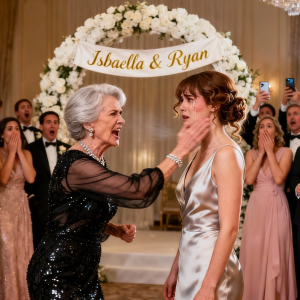
For fifteen years, every evening at 6 p.m. sharp, Margaret Shaw placed a steaming meal on the same green-painted bench in Maplewood Park.
She never waited to see who took it. Never left a note. Never told a soul.
It started as a quiet habit after her husband passed — something to keep her from dissolving into the silence of an empty house. But over time, it became a ritual known only to her and the hungry strangers who found comfort in that small act of kindness.
Rain or shine, summer or snowstorm — the meal was always there. Sometimes soup, sometimes stew, sometimes a sandwich wrapped in wax paper and tucked neatly into a paper bag.
No one knew her name. The town simply called her: the Bench Lady.
That Tuesday evening, the sky sagged heavy with rain. Margaret, now seventy-three, tugged her hood tighter as she crossed the park. Her knees ached, her breath came short, but her hands still held steady around the warm casserole dish.
She set it down carefully, as she always did. But before she could turn to leave, headlights sliced through the drizzle — a sleek black SUV pulled up to the curb.
For the first time in fifteen years, someone was waiting.
The back door opened, and a woman in a tailored navy suit stepped out, holding an umbrella and an envelope sealed with gold wax. Her heels sank slightly into the wet grass as she approached.
“Mrs. Shaw?” the woman asked, her voice trembling slightly.
Margaret blinked. “Yes… do I know you?”
The woman smiled, though her eyes were glassy. “You knew me once — though maybe not by name. I’m Lila. Fifteen years ago, I used to eat the meals you left here.”
Margaret froze, her hand halfway to her chest. “You… you were one of the girls?”
“There were three of us,” Lila said. “Runaways. We’d hide near the swings. Those meals kept us alive that winter.”
Margaret’s throat tightened. “Oh, dear heart…”

Lila stepped closer and placed the envelope in Margaret’s trembling hands. “We wanted to thank you. We thought you should know — what you did didn’t just feed us. It gave us a chance to believe that the world still had kindness in it.”
Inside was a letter and a check. Margaret’s vision blurred as she read.
“Dear Mrs. Shaw,
You once gave us food when we had nothing. Now, we want to give others what you gave us — hope.
We’ve started the Margaret Shaw Scholarship Fund for Homeless Youth. The first three recipients will begin college this fall. We used the name you wrote on one of the old meal bags — “M. Shaw.” We thought it was time the world knew who she was.
With love,
Lila, June, and Erin”
Margaret looked up, tears cutting through the rain. “You girls did this?”
Lila nodded. “We all made it. June runs a shelter in Portland. Erin’s a social worker in Chicago. And I’m… well, I suppose I’m a lawyer now.”
Margaret laughed softly through her tears. “A lawyer. I’ll be damned.”
They sat together on the wet bench, umbrella forgotten. For a moment, the park felt alive again — laughter mixing with the hiss of the rain, memories rippling through the air.
When Lila left, the SUV disappeared quietly into the gray, leaving behind only the envelope and the smell of rain-soaked earth.
Margaret stayed a while longer, her hand resting on the still-warm casserole dish.
That night, for the first time in fifteen years, she didn’t bring a meal to the park.
The next morning, however, the bench wasn’t empty.
Someone had placed a single white rose on the seat — and beneath it, a note written in elegant cursive:
6 p.m. lives on.




